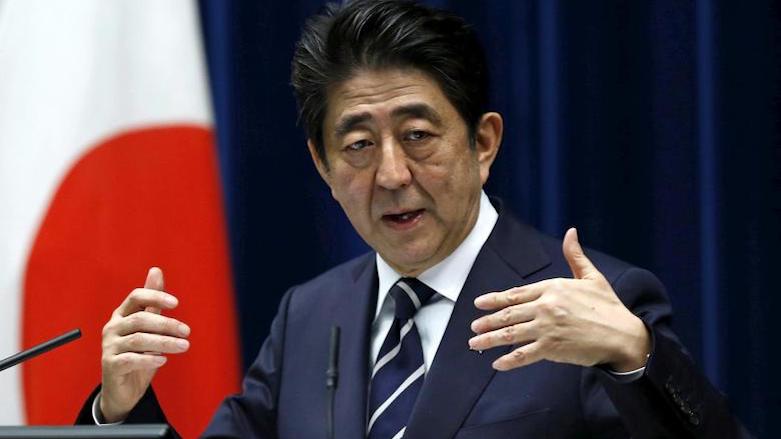Japan to deploy forces to Middle East to protect commercial interests, PM Abe says

ERBIL (Kurdistan 24) – Japan will deploy forces to the Middle East to protect its commercial interests in the region, Japanese Prime Minister Shinzo Abe said on Monday.
During a press conference in Kyodo, Prime Minister Abe commented on the recent developments in the Middle East following the US killing of Iranian general Qasim Soleimani.
According to the Japanese leader, Japan plans “to dispatch Self-Defense Forces personnel to secure the safe navigation of commercial ships in areas excluding the Strait of Hormuz.”
Abe also underlined the importance of diplomatic efforts to quell the tensions in the region, adding that Japan was “deeply concerned” with the current situation.
The statement comes after a US drone strike last week on a convoy near the Baghdad airport killed Soleimani, long-time head of the Quds Force, the paramilitary arm of Iran’s Islamic Revolutionary Guard.
The strike also killed Abu Mahdi al-Muhandis, the head of the Iranian-backed Shia militia, Kata’ib Hizbollah, which was responsible for killing a US contractor on Dec. 27 in a rocket attack on an Iraqi military base near Kirkuk.
Read More: US strike kills Qasim Soleimani and Abu Mahdi al-Muhandis
On Sunday, the US-led Coalition against the Islamic State announced that it was suspending operations against the terrorist group to focus on ensuring the security of the military bases in Iraq from which its troops operate.
Another complicating factor is the vote of the Iraqi parliament late on Sunday, when it approved a draft bill, calling for an end to the presence of foreign troops in Iraq.
Read more: Iraqi parliament approves draft bill to end US troop presence in Iraq
Kurdish and Sunni parliamentarians boycotted the extraordinary session of Iraq’s Council of Representatives. However, the draft measure was approved by the Council’s Shia members, who constitute a majority in the parliament and Iraq as a whole.
A formal vote on the bill is scheduled for next Saturday.
